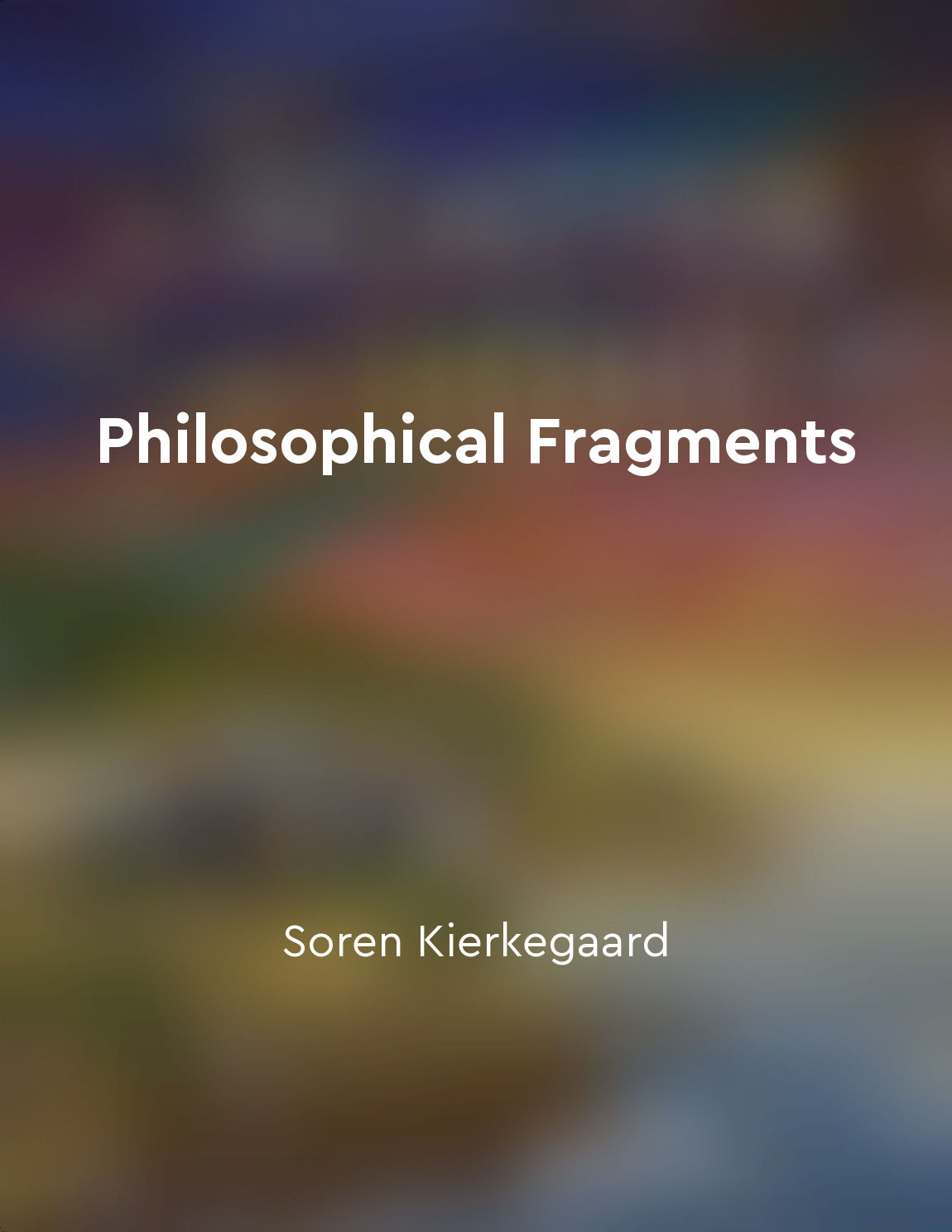Faith is not a comforting illusion, but a radical leap into the unknown from "summary" of Philosophical Fragments by Soren Kierkegaard
The concept of faith as presented in 'Philosophical Fragments' by Soren Kierkegaard challenges the conventional understanding of faith as a mere comforting illusion. Kierkegaard posits that true faith involves a radical leap into the unknown, a profound act of courage and commitment that defies rational explanation. For Kierkegaard, faith is not a passive acceptance of dogma or tradition, but an active engagement with the uncertainties and mysteries of existence. It requires a willingness to embrace uncertainty and ambiguity, to venture into uncharted territories without the safety net of empirical evidence or logical proof. In this sense, faith is not a crutch for the weak-minded or a refuge for the fearful. It is a bold and audacious leap into the abyss, a leap that demands courage, conviction, and a willingness to confront the inherent risks and challenges of belief. Kierkegaard's conception of faith as a radical leap into the unknown is rooted in his understanding of the human condition as inherently paradoxical and contradictory. He argues that human existence is characterized by a tension between the finite and the infinite, the temporal and the eternal, the visible and the invisible. In this light, faith represents a decisive response to the existential dilemmas and contradictions that define our existence. It is a leap of faith that transcends the limitations of human reason and understanding, opening up new possibilities and horizons of meaning and significance.- Kierkegaard's concept of faith challenges us to question our assumptions and preconceptions, to venture beyond the boundaries of our comfort zones and embrace the uncertainties and ambiguities of life. It calls us to take a leap of faith, to trust in something greater than ourselves, and to embrace the unknown with courage and conviction.


